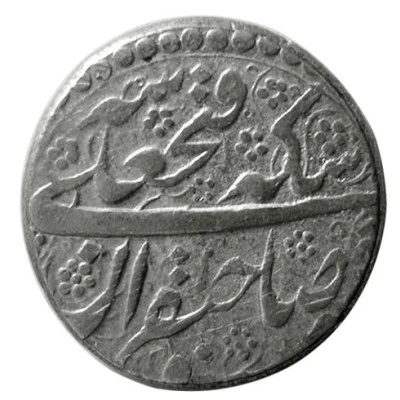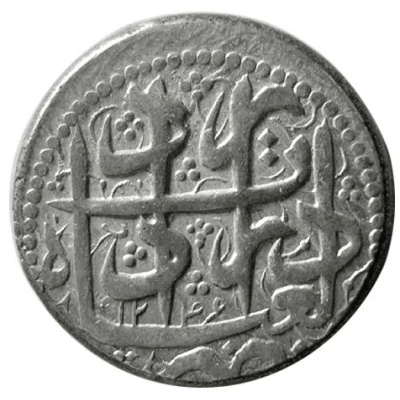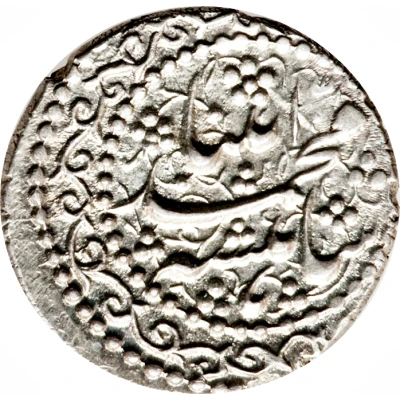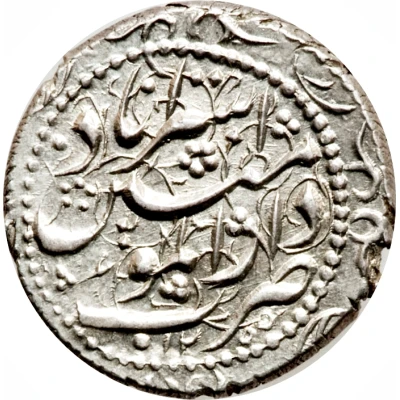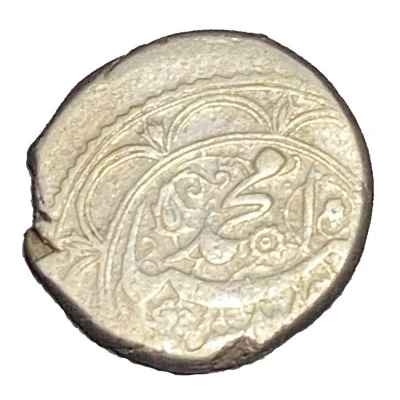
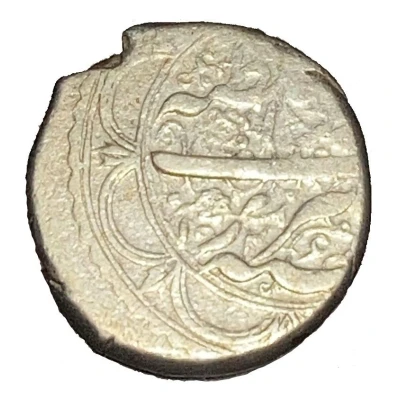

© IFS (CC BY-SA)
1 Qiran - Moḥammad Qājār Type D; Tabriz
| Silver (.773) | 5.37 g | 17 mm |
| Issuer | Iran |
|---|---|
| Shah | Mohammad Shah (1834-1848) |
| Type | Standard circulation coin |
| Years | 1251-1262 (1836-1846) |
| Calendar | Islamic (Hijri) |
| Value | 1 Qiran (قران) |
| Currency | Qiran (1825-1932) |
| Composition | Silver (.773) |
| Weight | 5.37 g |
| Diameter | 17 mm |
| Thickness | 2.0 mm |
| Shape | Round (irregular) |
| Technique | Hammered |
| Demonetized | Yes |
| Updated | 2024-10-05 |
| Numista | N#311690 |
|---|---|
| Rarity index | 92% |
Reverse
Lettering inside a two line inner circle, and a two line outer circle, with leaves ornaments.
Script: Arabic
Lettering:
ضرب دارالمؤمنین استراباد
۱۲۶۰
Translation:
zarb dar-ul-saltanat Tabriz 1260.
Mint of the Sultanate of Tabriz 1260
Edge
Plain
Comment
All purely inscriptional coins of Mohammad Shah share a common obverse legend: Mohammad Shahansha-e Anbiyja, "Muhammad, King of the Prophets", a word-play on the name of the ruler. All have mint and date on the reverse, as in previous reigns.Krause lists eleven variants for different mints, from KM#797.1 to KM#797.11, all type D, based on a kran (also spelled Qiran) of 5.37 grams.
The Persian symbol of The Lion and Sun and a red, white, and green background became the flag at this time, and coins started to included the Lion and Sun during Mohammad Shah's reign.
Interesting fact
One interesting fact about this coin is that it was minted during the reign of Mohammad Shah Qajar, who was the fourth Qajar king of Iran and ruled from 1834 to 1848. During his reign, Iran faced significant challenges, including the devastating famine of 1836-1837, which led to the deaths of an estimated one-third of the country's population. Despite these challenges, the coinage of Iran during this period continued to be minted, with the 1 Qiran coin being one example of a coin that was produced during this time.
